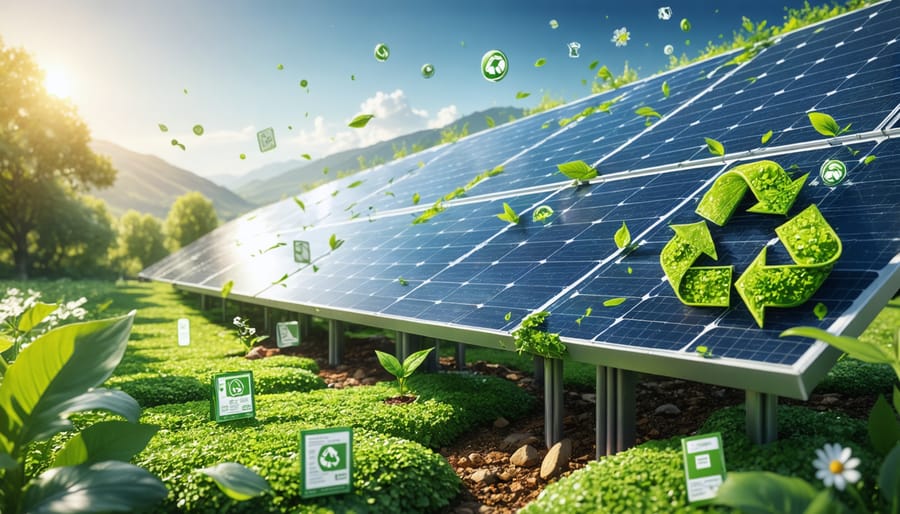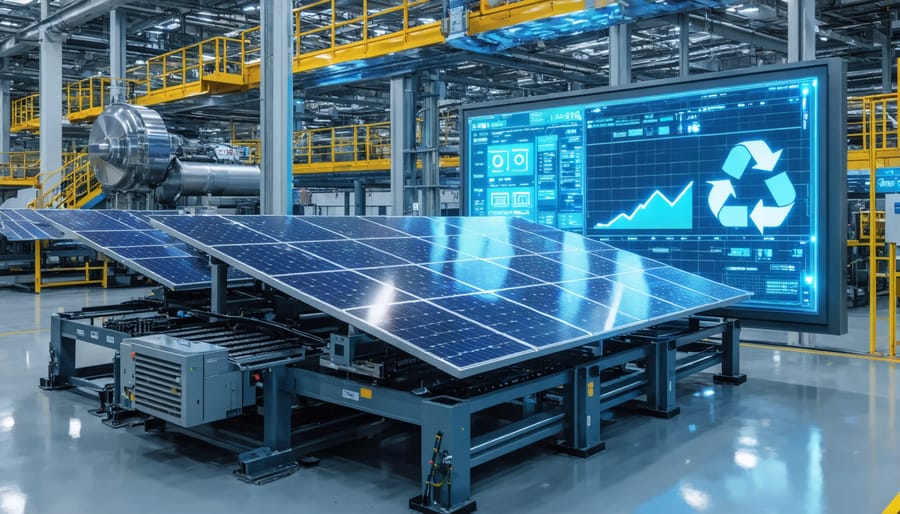Advanced recycling systems represent a pivotal technological leap in our journey towards a circular economy, transforming how we handle end-of-life materials from solar installations to complex industrial waste. European innovation has pioneered sophisticated automated sorting mechanisms, molecular recycling processes, and AI-driven material recovery systems that achieve recovery rates exceeding 95% for critical components.
Today’s advanced recycling facilities combine robotics, artificial intelligence, and chemical processing to break down complex materials into their fundamental building blocks. These systems not only …
Smart Solar Battery Recycling: How Advanced Systems Are Revolutionizing Sustainability








